
Dame Shirley Veronica Bassey is a Welsh singer. Known for her career longevity, powerful voice and recording the theme songs to three James Bond films, the only artist to perform more than one, Bassey is one of the most popular vocalists in Britain.

"Days of Wine and Roses" is a popular song, from the 1962 movie of the same name.
"A Poor Man's Roses " is a song was written by Bob Hilliard (lyricist) and Milton De Lugg (composer). The song was popularized by both Patsy Cline and Patti Page in 1957. Cline rerecorded the song with a string arrangement and in stereo, in 1961. Page recorded the song again in 1981.
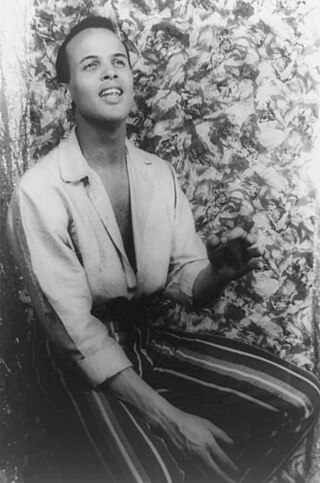
"Day-O " is a traditional Jamaican folk song. The song has mento influences, but it is commonly classified as an example of the better known calypso music.
"It's Magic" is a popular song written by Jule Styne, with lyrics by Sammy Cahn, published in 1947. They wrote the song for Doris Day in her Warner Brothers film debut, Romance on the High Seas. In the autumn of 1948 Vic Damone, Tony Martin, Dick Haymes, Gordon MacRae and Sarah Vaughan all charted on Billboard magazine charts with versions of the song, but none as successfully as Day's recording. "It's Magic" received an Academy Award nomination for Best Song, but in March 1949 lost to "Buttons and Bows" by Jay Livingston and Ray Evans.
"For All We Know" is a soft rock song written for the 1970 film Lovers and Other Strangers, with music by Fred Karlin and lyrics by Robb Wilson and Arthur James. Both Royer and Griffin were founding members of the soft rock group Bread. It was originally performed, for the film's soundtrack, by Larry Meredith. The best known version of the song is by American pop duo the Carpenters which reached No. 3 on the US Billboard Hot 100 chart and No. 1 on the US Billboard Easy Listening chart in 1971. The song was also a hit for Shirley Bassey at the same time in the United Kingdom. It has since been covered by various artists, including Petula Clark.

"Melody of Love" is a popular song. The music was originally written by Hans Engelmann in 1903. The lyrics were added by Tom Glazer in 1954.

"I'll Get By (As Long as I Have You)" is a popular song with music by Fred E. Ahlert and lyrics by Roy Turk that was published in 1928. Versions by Nick Lucas, Aileen Stanley and, most successfully, Ruth Etting, all charted in America in 1929.

"Goldfinger" is the title song from the 1964 James Bond film of the same name. Composed by John Barry and with lyrics by Leslie Bricusse and Anthony Newley, the song was performed by Shirley Bassey for the film's opening and closing title sequences, as well as the soundtrack album release. The single release of the song gave Bassey her only Billboard Hot 100 top forty hit, peaking in the Top 10 at No. 8 and No. 2 for four weeks on the Adult Contemporary chart, and in the United Kingdom the single reached No. 21.

Let's Face the Music is the sixth Shirley Bassey studio album, released in 1962 and arranged by Nelson Riddle. Kenneth Hume, Shirley Bassey's husband and manager, wrote the sleeve notes for this album, in which he gives an insight into how this album came to be: "When Vic Lewis booked Nelson Riddle for a tour with Shirley, we were all very excited; being great fans of Nelson Riddle's from way back...so when someone suggested them doing an LP together, we thought that this would not be possible, remembering that Nelson was under contract with another recording company." Nelson Riddle was under contract to Capitol Records at the time, so Bassey's producer Norman Newell went about to secure his services for an album. While on the tour, Bassey, Riddle, and Bassey's music director Raymond Long, discussed what form the album should take. Shortly after the tour was completed, the recording sessions began.

The Fabulous Shirley Bassey is the third studio album by Welsh singer Shirley Bassey, and her first for Columbia Records. It was recorded with Geoff Love and his orchestra, and peaked at #12 in the UK album chart in early 1961. Released in 1959, this was the first studio album from Shirley Bassey with completely new material. Her two previous albums issued on the Philips label were collections of new recordings and previously released material, recorded between 1956 and 1958.

I Am What I Am was the only studio album recorded by Shirley Bassey for the Towerbell Records label. Several other tracks were also recorded at this label and issued as singles only. The recording sessions took place at Olympic Studios, Barnes, London, in July and August 1984. Following the success of the previous album All by Myself, this album peaked at number 25 in the UK album chart and reached Gold status. This release was the first digitally recorded album made by Shirley Bassey and was issued on vinyl, cassette and CD. Consisting of mainly re-recordings from Shirley Bassey's back catalogue and two new songs, this album was recorded 'live' with The London Symphony Orchestra, conducted by Carl Davies. The album also reunited Shirley Bassey with Norman Newell, who had served successfully as her producer throughout the 1960s.

La MujerShirley Bassey canta en Español, is a Shirley Bassey studio album recorded in Spanish. The first recording sessions were held in Spain, and the album was completed in California, at the Hitsville West studio in December 1988. The 1980s saw a period of very few album releases from Shirley Bassey: All by Myself (1982); the acclaimed album I Am What I Am (1984); her recording of James Bond themes from 1987, The Bond Collection, ; and La Mujer. In 1987 the Swiss electronica band Yello approached Shirley Bassey about recording a song with them. The track "The Rhythm Divine" was a minor hit in the UK, charting at number 54 in the UK singles chart but achieving more success on mainland Europe. The success of the single released by Mercury Records, led to an album deal on the label.
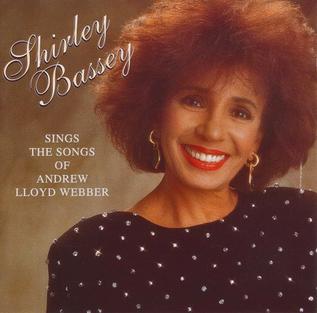
Sings the Songs of Andrew Lloyd Webber is a studio album by Shirley Bassey, released in 1993.

Born to Sing the Blues is the debut album by Welsh singer Shirley Bassey. It was released on a 10" LP in 1958 by the Philips Records label. Long-playing records were newly introduced in the mid-1950s and the 10" album was briefly introduced as an album format, shortly before the 12" format became the standard long playing format.
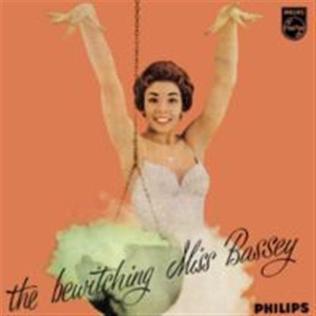
The Bewitching Miss Bassey is the second studio album by Welsh singer Shirley Bassey. Consisting of new and previously released material, this was the first album by Bassey to be issued on the 12" Long-playing record format. Tracks were taken from sessions recorded between 1956 and early 1959. All the songs were recorded in the UK with Wally Stott and his Orchestra, with production by Johnny Franz. The only exception was "The Wall" which was recorded in New York with Jimmy Carroll and his orchestra and produced by Mitch Miller. Featuring Bassey's first five hit songs, including Bassey's 1958 number one single "As I Love You" and the huge hit "Kiss Me, Honey Honey, Kiss Me". The album showcases the best of the early career of Shirley Bassey. All the songs were only recorded in mono, no stereo versions are known to exist. In the 1970s Philips did re-issue them in an "electronically enhanced" stereo. The album was re-issued in the US on the Epic label with different artwork. While this album has not been issued independently on CD, it was included in its entirety on the four-CD compilation titled Five Classic Albums Plus Bonus Singles in 2012.
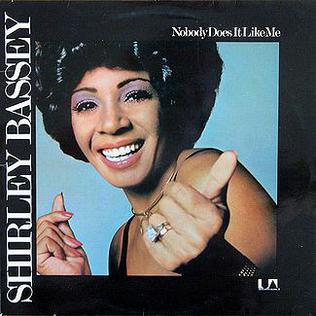
Nobody Does It Like Me is a 1974 album by Shirley Bassey. Bassey's recordings had been selling well since 1970, scoring three top ten singles and three ten top albums. Nobody Does It Like Me was recorded with a new producer, George Butler, and brought a partial return to the traditional pop sound of Bassey's pre-1970s career. Here, the title track "Nobody Does It Like Me" and "When You Smile" harken back to the big band era. Bassey's soaring vocals on Paul Anka's "I'm Not Anyone" and the slightly funky "Morning in Your Eyes" contrast with a delicately rendered "Davy". The duet "Davy", recorded with the song's composer Benard Ighner, is one of the rare occasions that Bassey would share the credits with another vocalist; it was also issued as a single and hit #44 on the US Adult Contemporary chart. The album closes with Bassey's reading of Stevie Wonder's "You Are the Sunshine of My Life". This album failed to chart in the UK, and peaked at #142 in the US. Her next two studio albums would be top 15 albums in the UK.
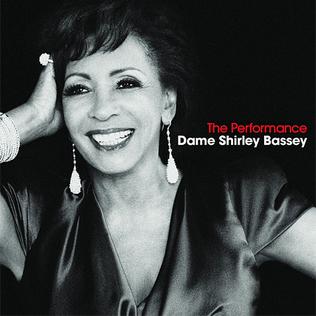
The Performance is an album by the Welsh singer Shirley Bassey, released on 9 November 2009. It is her first studio album of original compositions in three decades. The album was executive produced by music executive Paul Carey and English film composer David Arnold co-produced the entire album with Mike Dixon. Songs on the album were written specifically for Bassey by renowned writers such as Rufus Wainwright, Gary Barlow and Pet Shop Boys. The recording of the album became the subject of a BBC documentary titled The Girl from Tiger Bay named after the song written for the project by James Dean Bradfield and Nicky Wire of Manic Street Preachers. The album gained favourable reviews and was certified gold in the UK for sales of over 100,000 copies.
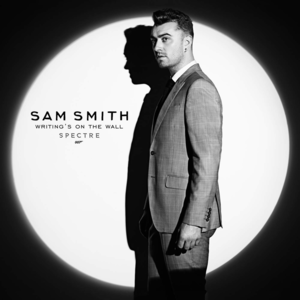
"Writing's on the Wall" is a song by English singer Sam Smith, written for the release of the 2015 James Bond film Spectre. The song was released as a digital download on 25 September 2015. The song was written by Smith and Jimmy Napes, and produced by the latter alongside Steve Fitzmaurice and Disclosure.















